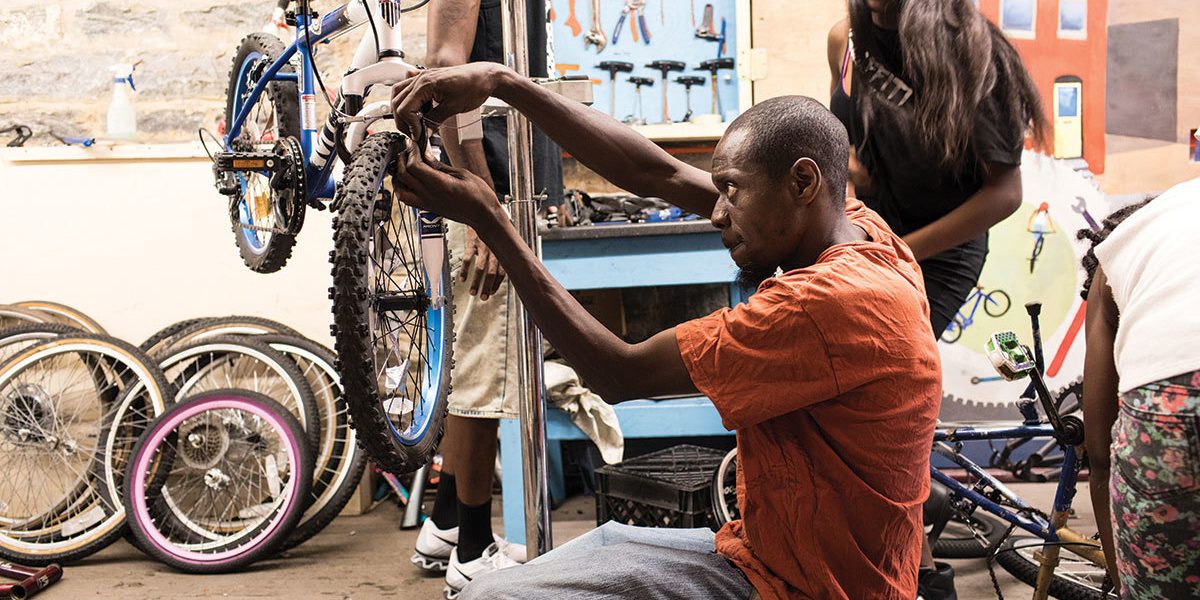News & Community
Switching Gears
A Greenmount collective offers kids their own mobility.
Walking into the Baltimore Youth Kinetic Energy collective, you’re greeted by the organized chaos of stray bicycle parts, hand-painted signs, and neighborhood youngsters busily at work.
BYKE, which was launched in 2014 by Johns Hopkins graduate Chavi Rhodes and Baltimore native Alphonso Blackstone, has grown a lot in its three years. Rhodes, who earned her master’s in public health, started the collective as an outlet for city youth. The bike shop that she and Blackstone frequented didn’t allow kids, but Rhodes saw an eagerness in them to learn about and help with bike repairs. “In a city that has so much passion for bicycles among youth, it made no sense that there were no programs or resources designated for them,” she says.
Located on Oliver Street, the kids-only collective operates as an after-school program. It offers credits to volunteers that can be used toward parts or their own set of wheels, which are donated by local institutions, residents, and police. Volunteer duties range from stripping old bikes to teaching others how to make repairs. “I got my first non-junky bike from here,” says Sean Bushee, 14, who volunteered eight times over four weeks to earn the credits. Bushee is now helping to repair a friend’s ride, too.
The goal of BYKE is to teach kids about work ethic and responsibility—skills that Rhodes feels could not be gained by simply buying or trading a bike. These mechanics-in-training learn from mentors, like Blackstone and his good friend, Lee Peterson, both of whom have been fixing bikes since they were kids themselves. “My father took my bike apart, laid all the tools on the ground, and said, ‘If you want to ride it, fix it,’” says Peterson. “So I did. Now that’s been my hobby my whole life.”
In the future, they hope to take BYKE on the road with a youth-run mobile repair truck, but for now, Blackstone just plans to continue being a role model. “I want to help them do the right thing, gain life experience, and pass it on to the next kid,” he says. “I want them to see that it’s not all bad experiences out there. There’s also a lot of good.”
